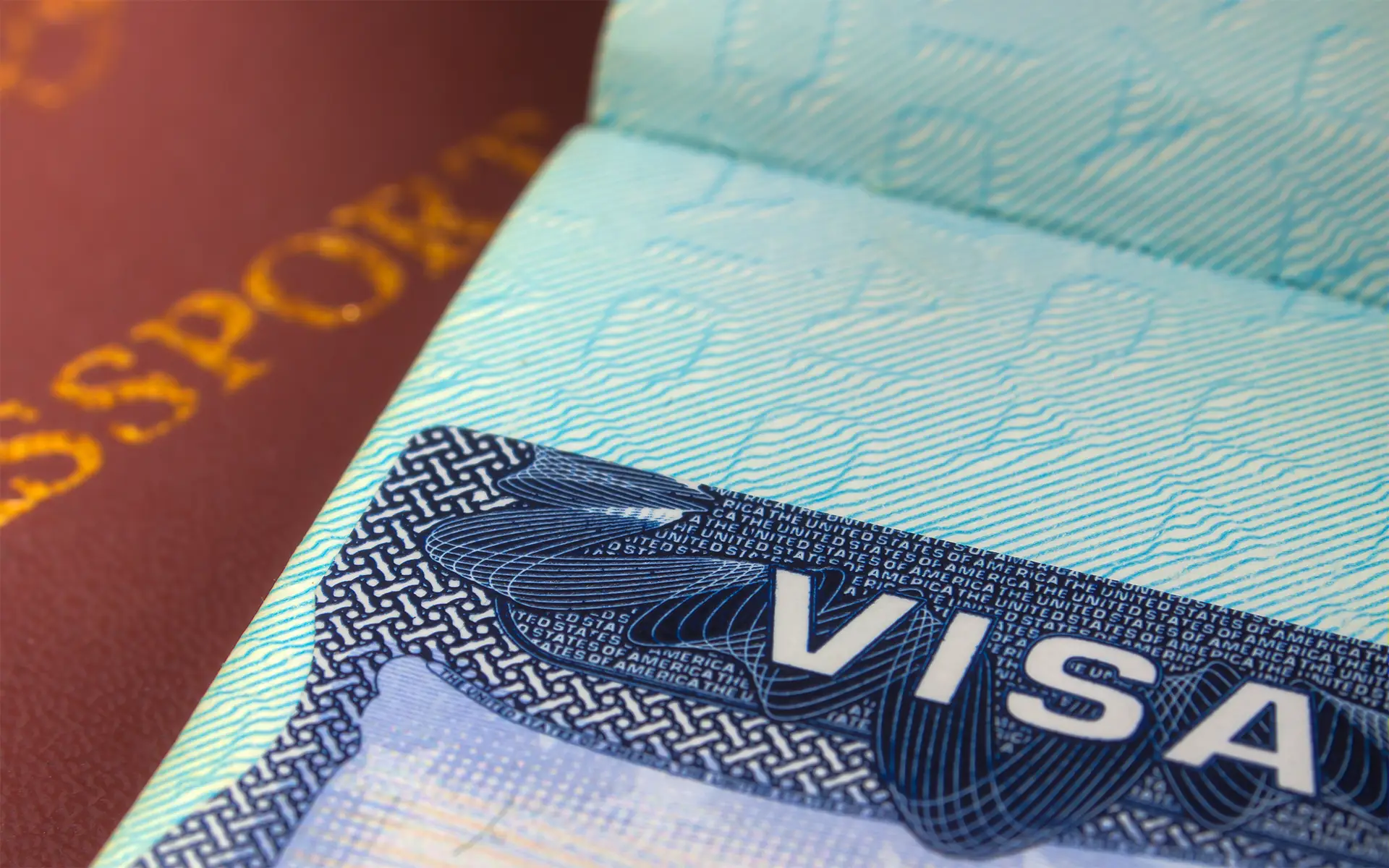
Iran visa
Traveling to Iran
With an ancient and rich history, a thriving economy, and a vibrant culture, Iran is a great destination for tourists, businesspersons, and students.
Nearly all nationalities are required to obtain a visa to enter Iran. All visa types, as defined by the policies of the Islamic Republic of Iran, can be applied for by using the online visa application portal. In some cases, certain foreign nationals may be required to apply for some visa types in person at the relevant Iranian embassy.
Foreign nationals from Armenia, Oman, Turkey, Lebanon, Egypt , Malaysia, Venezuela, Georgia, Syria, Iraq, China, Hong Kong, Macao, Azerbaijan, and Kazakhstan, are exempt from Iranian visa requirements. Nationals of some countries may not be able to obtain a visa due to political or diplomatic reasons. Citizens of such countries must refer to their nearest Iranian embassy for more information.
The validity of an Iranian visa will vary depending on the visa type and the purpose of the visit. The typical validity period for an Iranian visa is three (3) months. Visa holders will not be permitted to enter the country after that period has ended, aka the visa has expired.
Iran visa types
Iran offers several visa types to suit a variety of travel purposes. The following are available to foreign nationals coming to Iran:
- Entry visa
- This visa is reserved for foreign nationals who have an invitation from an official body in Iran for the purpose of short-term business or cultural activities.
- Tourist visa
- Foreign tourists can apply for this short-term visa for the purpose of sightseeing and other tourism activities.
- Pilgrimage visa
- Foreign Muslims can obtain this visa to visit Iran’s many holy places.
- Diplomatic and Service visas
- These two visa types are for diplomatic or consular employees or officers or guests of diplomats or officials residing in Iran. It can be used by diplomatic or official passport holders for the purposes of tourism, pilgrimage, educational programs, conferences, or cultural activities.
- Education visa
- Foreign students and religious scholars can obtain this visa to conduct their studies in Iran.
- Temporary Work visa
- This is for foreign nationals coming to Iran for work, including skilled workers and specialists.
- Transit visa
- Foreigners who need to pass through Iran on their way to another destination can obtain this visa.
- Media visa
- This is a visa for foreign members of a media organization including reporters, producers, cameramen, and radio hosts.
- Investment visa
- Foreign investors (with official permission) can obtain this visa for Iran.
- Marital visa
- This visa is reserved for foreign men who are married to Iranian women and their children. The marriage must be registered with the Iranian legal system.
- Medical visa
- Foreign nationals can travel to Iran for medical treatment on this visa. They must have an approval letter from an authorized medical center.
Iran visa requirements
Applicants for an Iranian visa are required to submit several mandatory documents and materials. The following are required of all foreign national visa applicants:
A valid passport
The passport should be valid for at least 6 months.
Copy of the passport
Copies must be clear JPGS measuring 800x600 pixels and occupying 500 kilobytes or less. Applicants should photocopy the first page of their passport (data page) containing their identification information and passport number.
Personal photo (digital copy)
Photos must be recent (within 6 months), in color, and measuring 400x600 pixels with 70-80% of the photo filled by the applicant’s face. Photos must be taken on a white background with a neutral facial expression. All files must be JPG and less than or equal to 500 kilobytes.
Travel itinerary (if applicable)
Any travel plans should be included in the application including accommodation, events, and travel details.
Resume or Curriculum Vitae (CV)
Applicants may be asked to provide full details of their work or educational history.
Travel insurance
All travelers to Iran must have travel insurance that will cover them for the duration of their stay in the country. All travel insurance plans must be obtained through an accredited company that has an office in Iran.
Proof of payment of visa fee
The most common visa fee payment method is a bank transfer or bank deposit made directly to the account of the embassy or consulate where the applicant submits their application materials.
Additional materials may be required depending on the visa type and where the applicant submits their application. These requirements may include invitation letters, medical documents, or documents showing their expected attendance at a cultural event or conference.
Iran visa application steps
Applicants can take the following steps to complete their visa application and submit the required documents for their visa type:
- Complete the visa application form
The visa application can be completed online at the Islamic Republic of Iran Electronic Visa System.
- Locate an Iranian embassy/consulate
Applicants should locate the embassy or consulate where they will submit their application materials.
- Receive the confirmation email and Tracking Code
Applicants will receive a confirmation email and a Tracking Code to the email given in their online application. They must use the Tracking Code to monitor the status of their application.
- Submit required documents to the embassy/consulate
If the application is approved online, applicants can send a copy of their tracking number and all required documents to the embassy or consulate for processing. Documents can be submitted online or in person depending on the embassy or consulate and the visa type.
- Pay the visa fee
The most common method of payment for visa fees is a bank transfer or bank deposit to the account of the relevant embassy or consulate.
- Receive the approved visa
Depending on the way they submitted their application materials, approved visas will be received as either an electronic or sticker visa.
Any applicant may be requested to attend a visa interview at their nearest embassy or consulate. Applicants can prepare for the interview by reviewing their itinerary and required documents.
Where to apply for Iran visa
The location applicants submit their Iranian visa will depend on their nationality and visa type. For most foreign nationals, the visa application can be completed online through the official Islamic Republic of Iran Electronic Visa System portal.
Once the visa application is approved, the required documents can be submitted online or in person at an embassy or consulate. These applicants will receive an electronic visa or a sticker visa in their passport depending on the method of submission.
Iran visa processing time
Processing times will vary for Iranian visas depending on the applicant’s nationality and the foreign mission where they submit their visa application. Applicants are advised to apply for their visa well in advance to avoid delays, but should not submit the application earlier than 90 days prior to their intended travel date to Iran. Once the Iranian visa is issued, applicants have 90 days (three (3) months) to arrive in Iran.
Iran visa FAQ
An Iranian visa is a travel document that allows foreign nationals to lawfully enter Iran to engage in various activities from business events to visiting family. Iranian visas can either be obtained as an eVisa or a sticker visa.
The location applicants submit their Iranian visa will depend on their nationality and visa type. For most foreign nationals, the visa application can be completed online through the official Islamic Republic of Iran Electronic Visa System portal. Once the visa application is approved, the required documents can be submitted online or in person at an embassy or consulate. These applicants will receive an electronic visa or a sticker visa in their passport depending on the method of submission.
The validity of an Iranian visa will vary depending on the visa type and the purpose of the visit. The typical validity period for an Iranian visa is three (3) months. Visa holders will not be permitted to enter the country after that period has ended, aka the visa has expired.
Processing times will vary for Iranian visas depending on the applicant’s nationality and the embassy or consulate where they submit their visa application.


